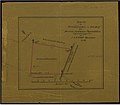Jantzen & Thormählen
Jantzen & Thormählen was a colonial company founded in Hamburg in 1874 by Wilhelm Jantzen and Johann Thormählen. Both shareholders had gained experience in Adolph Woermann's company .
history
Wilhelm Jantzen and Johann Thormählen worked for the Woermann line , Jantzen in Liberia and Thormählen in Cameroon for several years . In 1874 the two decided to set up their own trading house in Hamburg and opened their first branch on the Cameroon River. The company focused on trade with the west coast of Africa and established factories in Greater Batanga , Campo , Bata-Bai , Eloby , Gabon and Ogowe . The trade was carried out with sailing and steam ships . The main trade goods were palm oil and palm kernels. The company thus established itself together with Woermann as the only German company in Cameroon. However, English trading houses dominated the market.
Jantzen & Thormählen and Woermann therefore turned to Otto von Bismarck . The aim was "to eliminate the hassle-free middlemen and to establish a purchasing monopoly". Both companies played a key role in founding the German colony of Cameroon . In 1884 an assistance pact was signed with the German government, represented by Dr. Gustav Nachtigal, and Cameroon's rulers with King Bell and King Akwa (kings of the Duala (people) ) signed. Johannes Voss signed for the company and Eduard Schmidt for Woerman. Cameroon thus became a German protected area. But Thormählen & Jantzen took opposite views on Woermann. The company Jantzen & Thormählen wanted the German protected areas to be isolated from international trade, while Woermann refused. The syndicate for West Africa , which was founded as part of the trade with Cameroon, broke up because of these contradictions.
On Mount Cameroon , the largest plantation in West Africa was 90,000 hectares , on which cocoa, coffee, rubber , oil palm and bananas were grown. To develop this huge area, the population was expropriated, villages devastated and the surviving population sent to reservations or forced to work on the plantation. Resistance from the population was put down by the military, who captured additional workers, especially children, some of whom were forced to work for 18 hours under dire conditions.
The trading house dissolved in 1907 after Thormählen's withdrawal from business life. Jantzen continued to run a successor company until his death in 1917 as "CFW Jantzen Im- und Export".
photos
Individual evidence
- ^ A b c Hans-Dieter Loose: Jantzen, Wilhelm. In: New German Biography (NDB). Volume 10, Duncker & Humblot, Berlin 1974, ISBN 3-428-00191-5 , p. 349 f. ( Digitized version ).
- ↑ Cameroon yesterday and today. Kamerun-Tourismus.de, accessed on February 28, 2013 .
- ↑ Dr. Kai Schmidt-Soltau: Douala . In: Day trip of the participants of the delegation of the German Bundestag to Cameroon . December 13, 2003 ( schmidt-soltau.de [PDF]).
- ^ House Flags of German Shipping Companies, Jantzen & Thormählen
- ↑ Jantzen, Wilhelm
- ↑ Heide Kuhlmann: From tree bark from the land of many crabs - Yohimbin Spiegel® has been part of the modern medicinal treasure for a century - a historical pharmaceutical inventory. Heide Kuhlmann, 1999, archived from the original on July 1, 2009 ; Retrieved February 28, 2013 .
- ^ History of Cameroon. Shisásáy - Active in Cameroon, accessed on February 28, 2013 .
- ^ Colonial history Africa-Hamburg: Global Players. afrika-hamburg.de, accessed on February 28, 2013 .




